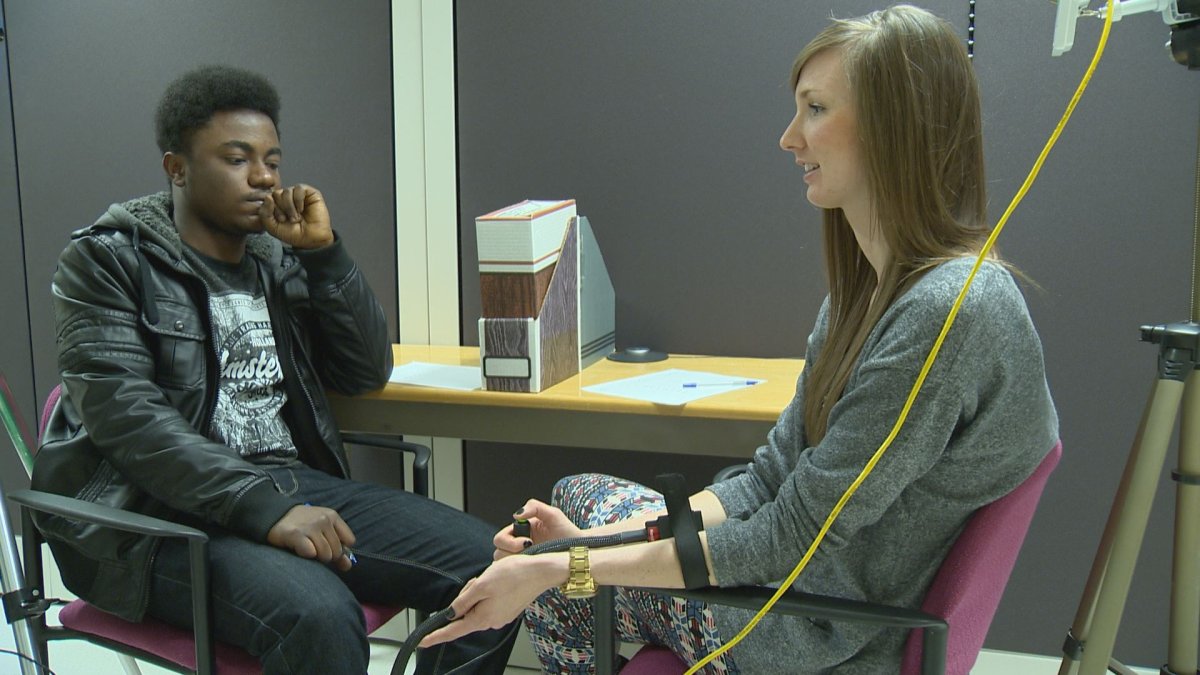REGINA – There are no visible bumps or bruises, but Elaine Torrie wakes up in pain every morning.

“You feel more tired than you went to bed, and it usually takes me a few hours in the morning to get my head on straight,” she explained.
Torrie was diagnosed with fibromyalgia in 1990 and says the pain not only makes the simplest tasks a challenge, but also contributed to the deterioration of her marriage.
“I’m in pain like my thumbs, my knees, my neck, my shoulders, they all hurt. But because you can’t see the hurt, they don’t know it’s there.”
Chronic pain can be invisible but debilitating.
One in five people live with chronic pain in Canada, meaning they’ve experienced the pain for six months or longer.
Now a new study at the University of Regina is researching how someone’s suffering can hurt their relationship.
Michelle Gagnon is a clinical psychology student and leading the research which involves a pain test.
“Family members, spouses, and just all of the people around us are all impacted when a person has chronic pain,” Gagnon said. “So it’s just trying to get a better understanding of the social and contextual variables around pain.”
Gagnon is seeking couples to participate in the study which sees one person wear a metal plate that heats up and records their pain threshold. Their significant other observes and records the amount of pain they believe their partner is experiencing.
The ultimate goal, Gagnon said, is to develop better coping skills for the pair.
“It will serve as the foundation for future studies,” she explained. “The findings can lead to further hypothesis that would be treatment based.”
SueAnne Farthing, a physiotherapist at Courtside Sports Medicine & Rehabilitation, said it’s critical to enlist loved ones in a client’s treatment process.
“The stress they experience from the pain, the anxiety and depression that can occur from that will impact relationships. A very good support system is needed for the family member,” she said.
Gagon adds that the study is paid and safe.
Anyone interested in participating can contact Michelle Gagnon by calling 306-585-5341 or by email at gagnonmi@uregina.ca




Comments